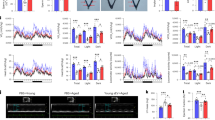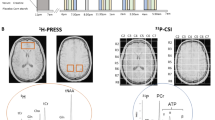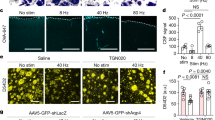Abstract
DURING investigations of the synthesis, storage and release of peripheral catecholamines, 1-amino-4-phenyl pyridinium chloride (AH.2035) was found to cause a marked depletion of noradrenaline in mouse heart. The results reported here suggest that the compound (I) may be a useful antihypertensive agent.
This is a preview of subscription content, access via your institution
Access options
Subscribe to this journal
Receive 51 print issues and online access
$199.00 per year
only $3.90 per issue
Buy this article
- Purchase on Springer Link
- Instant access to full article PDF
Prices may be subject to local taxes which are calculated during checkout
Similar content being viewed by others
References
Bertler, A., Carlsson, A., and Rosengren, E., Acta Physiol. Scand., 44, 273 (1958).
Maxwell, R. A., Plummer, A. J., Schneider, F., Povalski, H., and Daniel, A. I., J. Pharmacol., 128, 22 (1960).
Finkleman, B., J. Physiol., 70, 145 (1930).
Author information
Authors and Affiliations
Rights and permissions
About this article
Cite this article
BRITTAIN, R., FARMER, J., JACK, D. et al. 1-Amino-4-phenyl Pyridinium Chloride: a Potential Antihypertensive Agent. Nature 213, 731–732 (1967). https://doi.org/10.1038/213731a0
Issue Date:
DOI: https://doi.org/10.1038/213731a0
Comments
By submitting a comment you agree to abide by our Terms and Community Guidelines. If you find something abusive or that does not comply with our terms or guidelines please flag it as inappropriate.



